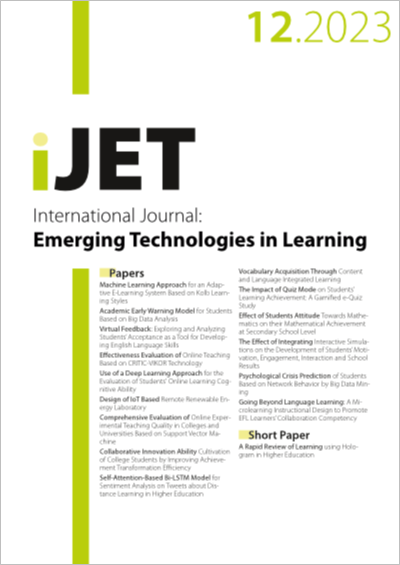Self-Attention-Based Bi-LSTM Model for Sentiment Analysis on Tweets about Distance Learning in Higher Education
DOI:
https://doi.org/10.3991/ijet.v18i12.38071Keywords:
COVID-19, distance learning, higher education, sentiment analysis, deep learning, TwitterAbstract
For limiting the COVID-19 spread, countries around the world have implemented prevention measures such as lockdowns, social distancing, and the closers of educational institutions. Therefore, most academic activities are shifted to distance learning. This study proposes a deep learning approach for analyzing people’s sentiments (positive, negative, and neutral) from Twitter regarding distance learning in higher education. We collected and pre-processed 24642 English tweets about distance learning posted between July 20, 2022, and November 06, 2022. Then, a self-attention-based Bi-LSTM model with GloVe word embedding was used for sentiment classification. The proposed model performance was compared to LSTM (Long Short Term Memory), Bi-LSTM (Bidirectional-LSTM), and CNN-Bi-LSTM (Convolutional Neural Network-Bi-LSTM). Our proposed model obtains the best test accuracy of 95% on a stratified 90:10 split ratio. The results reveal generally neutral sentiments about distance learning for higher education, followed by positive sentiments, particularly in psychology and computer science, and negative sentiments in biology and chemistry. According to the obtained results, the proposed approach outperformed the state-of-art methods.
Downloads
Published
How to Cite
Issue
Section
License
Copyright (c) 2023 Imane Lasri, Anouar Riadsolh, Mourad Elbelkacemi

This work is licensed under a Creative Commons Attribution 4.0 International License.


